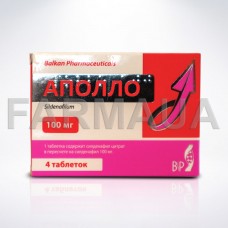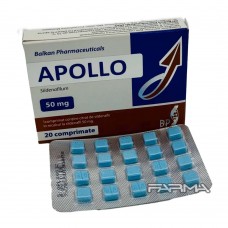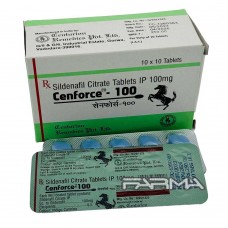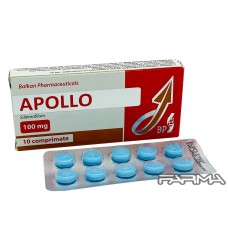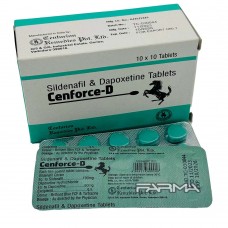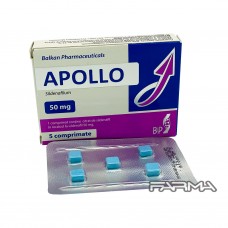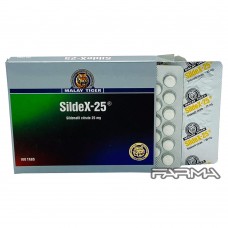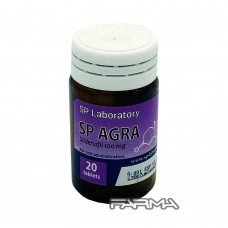Sildenafil is a medication classified as a phosphodiesterase type 5 (PDE5) inhibitor. It is commonly marketed under the brand name Viagra, among others. Sildenafil is primarily prescribed for the treatment of erectile dysfunction (ED), a condition characterized by the inability to achieve or maintain an erection sufficient for sexual activity. This article aims to explore the uses, effects, and considerations associated with sildenafil.
Mechanism of Action:
-
Phosphodiesterase Inhibition: Sildenafil works by inhibiting the enzyme phosphodiesterase type 5 (PDE5). This inhibition leads to increased levels of cyclic guanosine monophosphate (cGMP) in the smooth muscle cells of the corpus cavernosum of the penis. Elevated cGMP levels promote relaxation of smooth muscle tissue and vasodilation, resulting in increased blood flow to the penis, which facilitates the attainment and maintenance of an erection.
Medical Uses of Sildenafil:
-
Erectile Dysfunction (ED) Treatment: Sildenafil is primarily indicated for the treatment of erectile dysfunction in adult men. It is commonly prescribed to improve erectile function and enhance sexual performance.
-
Pulmonary Arterial Hypertension (PAH) Treatment: In addition to its use in erectile dysfunction, sildenafil is also approved for the treatment of pulmonary arterial hypertension (PAH). In PAH, sildenafil's vasodilatory properties help reduce pulmonary vascular resistance and improve exercise capacity.
Off-Label Uses of Sildenafil:
-
Raynaud's Phenomenon: Sildenafil has been investigated for its potential efficacy in the treatment of Raynaud's phenomenon, a condition characterized by episodic vasospasm of the peripheral arteries, typically in response to cold or emotional stress. While not approved for this indication, sildenafil's vasodilatory effects may alleviate symptoms in some individuals with Raynaud's phenomenon.
Considerations for Sildenafil Use:
-
Dosage and Administration: The recommended dosage of sildenafil varies depending on individual factors such as the severity of erectile dysfunction, response to treatment, and presence of underlying medical conditions. It is typically taken orally, with or without food, approximately 30 to 60 minutes before anticipated sexual activity. The duration of sildenafil's effect may last up to 4 to 6 hours, but individual response may vary.
-
Side Effects: Common side effects of sildenafil may include headache, flushing, nasal congestion, dyspepsia (indigestion), and dizziness. Rare but serious side effects may include priapism (prolonged erection), sudden hearing loss, and vision changes. Individuals experiencing severe or persistent side effects should seek medical attention promptly.
-
Drug Interactions: Sildenafil may interact with certain medications, including nitrates, alpha-blockers, antihypertensives, and certain antifungal and antibiotic drugs. Concurrent use of sildenafil with these medications may result in hypotension (low blood pressure) or other adverse effects. It is essential to inform healthcare providers of all medications being taken to avoid potential interactions.
-
Contraindications: Sildenafil is contraindicated in individuals with a known hypersensitivity to the drug or any of its components. It should not be used in combination with nitrates or nitric oxide donors due to the risk of severe hypotension. Additionally, individuals with certain cardiovascular conditions, liver or kidney impairment, or retinal disorders should use sildenafil with caution or under medical supervision.
-
Sexual Stimulation Requirement: Sildenafil is not an aphrodisiac and requires sexual stimulation to be effective. It does not induce erections spontaneously but rather enhances the body's natural response to sexual arousal.
Conclusion: Sildenafil is a phosphodiesterase type 5 (PDE5) inhibitor primarily used for the treatment of erectile dysfunction in adult men. It is also approved for the treatment of pulmonary arterial hypertension (PAH). Understanding the uses, effects, and considerations associated with sildenafil is essential for individuals considering its use for the management of erectile dysfunction or other medical conditions. Proper dosage, administration, monitoring for side effects, and awareness of contraindications and drug interactions are crucial for safe and effective use of sildenafil therapy. Individuals experiencing erectile dysfunction or considering sildenafil therapy should consult with a healthcare provider for personalized evaluation and management.
